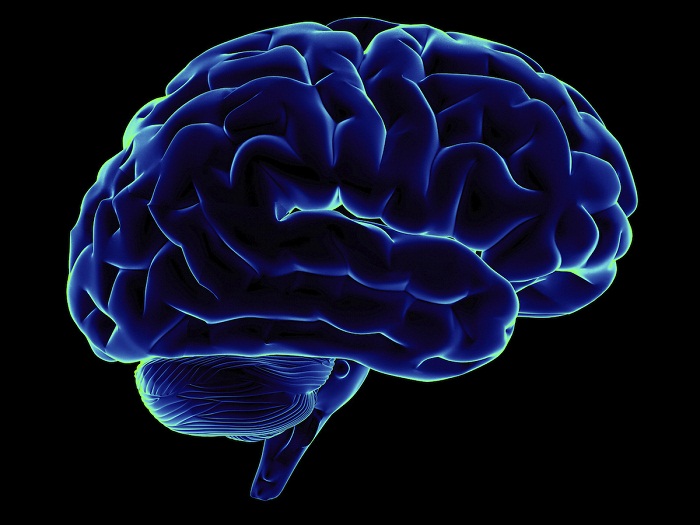Gwyneth Paltrow, Miley Cyrus, and tennis star Novak Djokovic are just a few of the celebrities who have reportedly claimed the lifestyle has not only given them a boost in energy, but has also improved their physical and mental health.
Now research released today suggests adopting a gluten-free diet can reduce fatigue and increase energy levels.
It can also lessen bloating, flatulence and fatigue because it leads to a healthier nutritional intake, the study by Aberdeen University`s Rowett Institute of Nutrition and Health.
Reshaping your diet to remove gluten was also found to lead to it containing more fibre and reduces salt consumption, which reduces blood cholesterol and glucose.
The `Going Gluten Free` study is the largest of its kind in the UK, found using the diet can make you healthier.
It was equally by the university, the government and Genius Foods.
They asked 95 adults, made up of 64 women and 31 men, to adopt a gluten-free diet for three weeks and then to return to their `normal` diet for the same period.
Those involved in the study, who had an average age of 38 and a BMI of 24.8, found stomach cramps and rumbles were reduced and their fatigue levels were lower during the gluten-free spell.
It also found evidence that gluten intolerance not only exists for those with coeliac disease, but for others too.
Coeliac disease is a digestive condition where a person has an adverse reaction to gluten, causing intestinal damage.
For those living with coeliac disease, eating foods containing gluten can trigger a range of symptoms, such as diarrhoea, abdominal pain and nausea.
It is thought to affect one in every 100 people in the UK, with less severe cases often being missed or misdiagnosed.
The study, part-funded by the government`s Technology Strategy Board which supports the development of innovative technologies and products, also found vitamin B12 and folate remained stable during the gluten-fee period, suggesting participants were not taking in fewer vitamins.

`CARBOHYDRATES ROT YOUR BRAIN`: NEUROLOGIST CLAIMS
Advocates of a carbohydrate-free diet include American neurologist David Perlmutter, from Florida.
He suggests that even ‘good’ carbs, such as grains, are severely affecting our brains and contributing to devastating diseases such as Alzheimer’s.
Staples of the modern diet are not only increasing the risk of dementia, but contributing to depression, epilepsy and headaches, he asserts.
In his book `Grain Brain: The Surprising Truth About Wheat, Carbs, and Sugar – Your Brain’s Silent Killers,` he says the origin of brain disease is often dietary.
He suggests a return to the days when our diet was mainly fat – which once made up 75 per cent of our diet, and carbs just 5 per cent.
Protein intake should stay the same as it is, at about 20 per cent, he suggests.
Research has shown that a high-carb diet may increase the risk of dementia.
A study published in Journal of Alzheimer’s Disease found that elderly people who ate a high-carb diet were more than three times as likely to develop mild cognitive impairment – which has been linked with a higher risk of dementia.
People whose diets were highest in ‘good’ fats, such as those found in nuts and healthy oils were 42 per cent less likely to get cognitive impairment. Those with a high intake of protein, such as meat and fish, had a reduced risk of 21 per cent, it reported.

However, Non-Coeliac Gluten Sensitivity (NCGS) - where the body reacts to gluten but with minimal intestinal damage - is thought to affect a significantly higher proportion of the population.
But while the clinical case for coeliac disease is clear, studies into NCGS are inconclusive.
Dr Alexandra Johnstone, of the Rowett Institute of Nutrition and Health, said: `It was interesting to discover that a gluten-free diet improves feelings of fatigue, with participants reporting much higher energy levels during the gluten-free period of the study.
`The fact that they were able to start tasks quicker, concentrate better and think clearer during this time, and felt the need to rest less, all point towards the idea that sensitivity to gluten does exist for some individuals who don`t have coeliac disease.
`It was equally interesting to see that none of participants gained any weight while going gluten-free, in fact our participant`s diets improved through increased fibre and vegetable consumption, and reduced salt intake.
`The next step for us now is to uncover how all of this is reflected in the gut - the main organ affected by coeliac disease.`
Lucinda Bruce-Gardyne, founder of Genius Foods, said: `This study knocks on the door of a new frontier of scientific research to help us better understand the subject of the gluten-free diet and its impact on health.`
















































